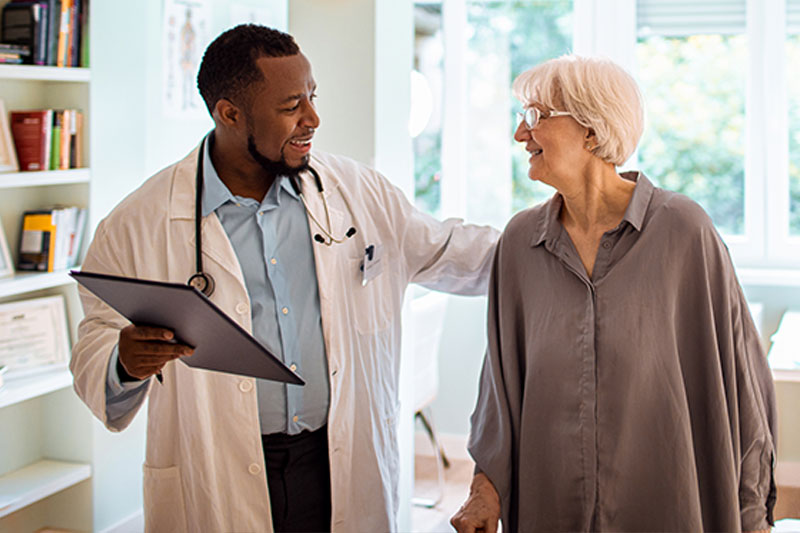
If you’re wondering what to do after a senior falls, we have answers.
While helping Mom prepare lunch yesterday, she turned around, lost her balance, and started to fall. Thankfully, you were able to get there in time to ease the fall, so he was not hurt. Because she wasn’t harmed, there was no need to visit the doctor. Following a quick break, both of you went about the rest of the day as planned.
Yet even if there was no injury, an incident such as this actually does call for medical follow-up. It’s important to know what to do after a senior falls, as falls can happen for many reasons. It’s also essential to determine the cause in order to prevent falls in the future. Schedule an appointment for the older individual straight away, and ensure that the doctor checks for the following:
High or Low Blood Pressure – Two Ways
Blood pressure levels must be tested while the senior is sitting down, and again while standing up. Blood pressure medication along with other medications could potentially cause a drop in blood pressure levels when the person gets up, causing dizziness, lightheadedness, or even fainting. However, only one out of three doctors check blood pressure levels while a senior is standing upright.
Stability and Gait
The physician should perform a gait examination, observing for any troubles with balance or walking. If an issue is noticed, it could be caused by pain in the back, feet, or joints. Arranging for physical therapy is a good next step to deal with balance and gait issues.
Underlying Health Issues
Explain any other conditions you’ve noticed in the senior along with the concern about falling. There are a number of health conditions that could result in the weakness that can trigger a fall, such as:
- Cardiovascular illnesses
- Pneumonia
- Parkinson’s disease
- Stroke
- Dehydration
- UTI
- Anemia
- And more
Low Vitamin D
Inadequate levels of vitamin D may be linked to an elevated risk of falling. It can also cause bones to become more fragile, leading to the possibility for a break or fracture in the event of a fall. The physician can decide whether a vitamin D supplement is recommended, and if so, what the proper dose is.
Current Medications
A complete overview of all of the medications the individual is taking, both prescription and over-the-counter, is required to lessen the chance for a subsequent fall. Many medicines raise the chance of falls, and it may be that the doses can be modified or medications stopped altogether. Specifically, ask the physician about medications the senior may be taking for:
- Sleeping
- Anxiety or depression
- Blood pressure
- Diabetes
- Allergies
- Overactive bladder
- Nausea
- Vertigo
- Pain
- Dementia
Blood Tests
Blood glucose or sodium levels that are too high or too low can contribute to falls, but there are a number of other blood tests that ought to be conducted. A complete blood cell count (CBC), kidney function check, and test for electrolyte levels are worthwhile. In the event that the senior is diabetic, bring along their blood sugar level log and glucometer for the doctor to review as well.
At Hearts at Home In-Home Care, a trusted provider of home care in Leawood and nearby areas, we are always on hand to do home safety assessments in order to prevent senior falls. Our aging care services are an excellent solution to enhance both independence and safety for seniors as well. We are able to provide transportation to medical appointments and tests, help with walking and transferring, run errands, take care of housework, and more. Give us a call at 913-440-4209 for a no-cost consultation today!
